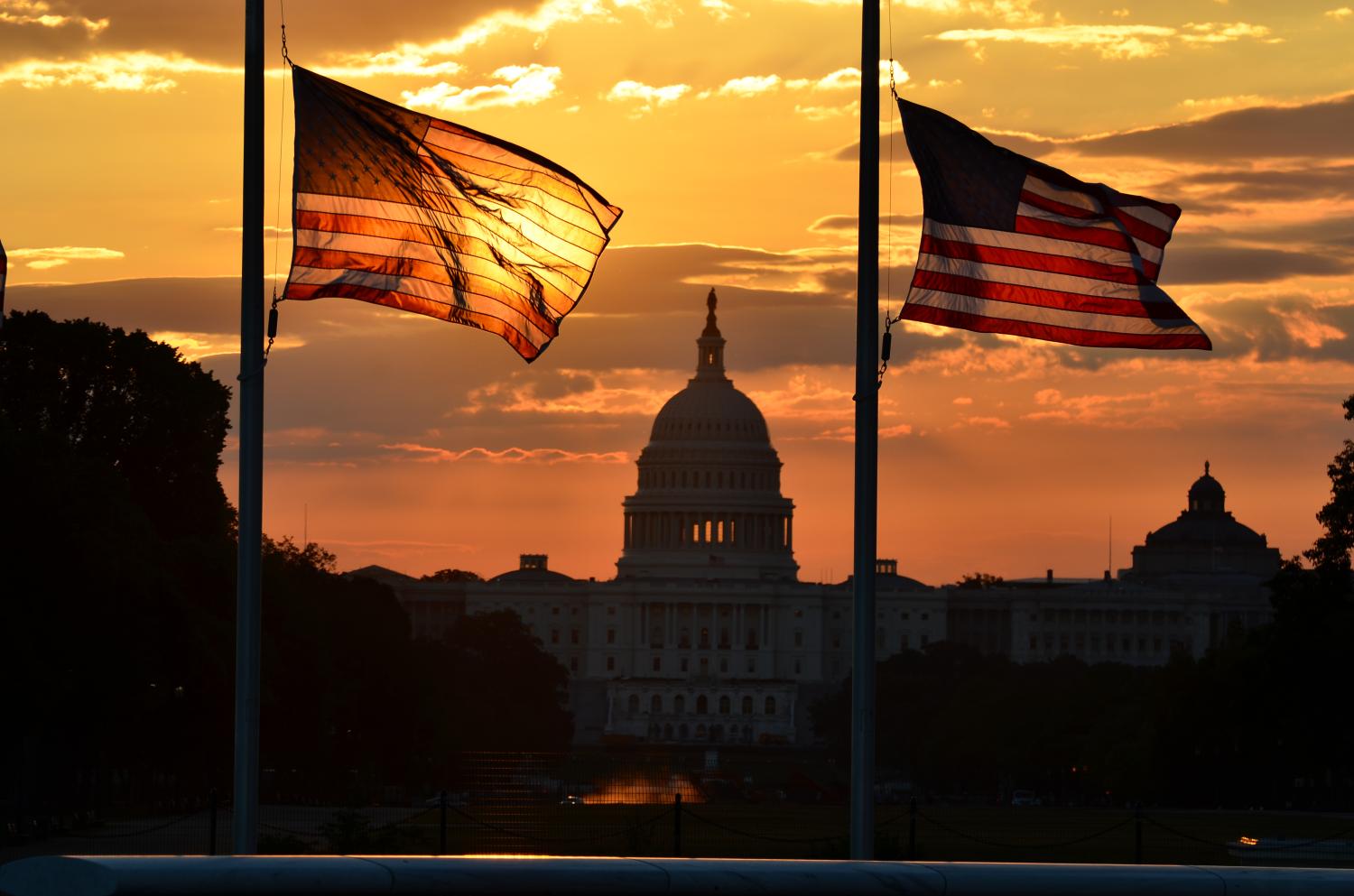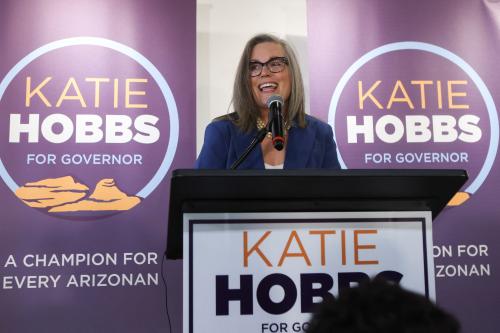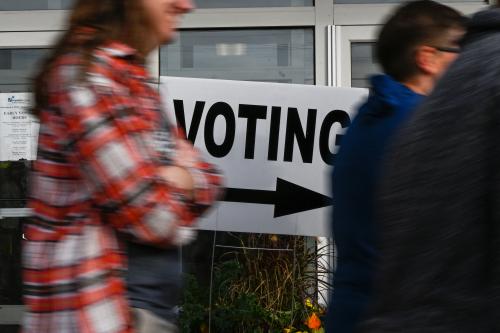This is Part 7 of a series which will take an in depth look at election deniers in the 2022 midterms in an effort to assess their likelihood of success, their plans if elected, and their impact on election administration and democracy.
It appears that the grand jury in Fulton County, Georgia may be about to recommend charges for election-denial attacks on the 2020 presidential contest in that state. But in addition to Georgia, Republican electors in multiple other states also allegedly issued false electoral slates similar to the one scrutinized by Fulton County prosecutors, reportedly at times at the direction of and in coordination with the Trump campaign.[1]
A survey of the seven states where Republican electors are reported to have met on December 14, 2020—the day the Electoral College convened to cast its votes for president—reveals a factual and legal basis for other state investigations of those officials who took the origins of the election denial movement to an extreme: potential criminal wrongdoing. The false electors signed their names to documents that claimed they were “duly elected and qualified” electors from their state (implying President Trump won the popular vote in their states, when he did not). Then those documents were submitted to Congress and the National Archives, raising the question of whether the false electors may have violated state laws in jurisdictions other than Georgia.
This essay summarizes the known facts surrounding the false electors’ activities in each of the seven states where false slates were created, as well as a sampling of potentially applicable state laws that may be implicated by the electors’ conduct.
We begin with Georgia, which offers the most advanced example of a state investigation. We then turn to four other states that may offer comparable circumstances for state investigations to be developed: Arizona, Michigan, Nevada, and Wisconsin. Those are the strongest cases.
We next turn to New Mexico and Pennsylvania. In those two states, the false electors added qualifiers to their certificates that attempt to condition the certificates’ legitimacy on favorable decisions in concurrent court challenges to the election results. In other words, the certificates purported only to take effect if Trump won his post-election litigation challenges. Those cases are not as strong. Finally, we conclude with a note about the federal criminal investigation and its relevance to parallel state review.
Georgia
Sixteen Republican electors allegedly met on December 14, 2020, at the Georgia state capitol and signed a certificate purporting to show President Trump’s electoral college victory in the state. Communications between the false electors and members of the Trump campaign, including Robert Sinners, the campaign’s election operations director for Georgia, indicate that campaign officials played a direct role in coordinating the false electors’ meeting and encouraged them to sign and submit their certificate with “complete secrecy.” The false electors’ conduct may implicate several Georgia laws that criminalize false statements and writings, false swearing, and forgery, among others.
The Georgia false electors and the Trump campaign officials who purportedly assisted them are currently under investigation by the Fulton County District Attorney Fani Willis for their activities pertaining to the false electoral certificate in that state. The electors receiving target letters from Willis’s office suggests they face legal peril for their 2020 election conduct.
Arizona
Eleven Republican electors from the state of Arizona reportedly met on December 14, 2020, at the state party headquarters and attested in writing that they were “duly elected and qualified Electors for President and Vice President of the United States of America from the State of Arizona.” This false attestation may implicate Arizona’s laws on counterfeiting election results and forgery more broadly. Additionally, Arizona has also criminalized “knowingly caus[ing] or procur[ing]” someone, including oneself, to be registered as an elector when they are “not entitled to such registration.”
Two of the 11 Arizona electors, Chairwoman Nancy Cottle and Secretary Loraine B. Pellegrino, were subsequently subpoenaed by the January 6 Committee. The subpoenas sought “information about [their] role and participation in the purported slate of electors casting votes for Donald Trump and, to the extent relevant, [their] role in the events of January 6, 2021.”
Michigan
According to former Michigan Republican Party chair Laura Cox, the Trump campaign informed her that sixteen Republican electors allegedly sought to hide overnight in the state capitol to fulfill requirements under state law that electoral votes be cast in official chambers. The electors then apparently met on December 14, 2020 and signed a document claiming that they were “duly elected and qualified Electors for President and Vice President of the United States of America from the State of Michigan.”
In doing so, the false electors may have violated Michigan state laws barring the forgery of public records as well as more generally the creation, filing, or publication of false documents “with the intent to defraud.” Michigan’s attorney general referred the matter for federal investigation, and at least some of the false electors have received subpoenas.
Nevada
In Nevada, six Republican electors, including state party Chairman Michael McDonald, purportedly gathered at the state capitol at noon on December 14, 2020. They subsequently cast votes for Trump and asserted in writing that they were “duly elected and qualified Electors for President and Vice President of the United States of America from the State of Nevada.” This attestation may expose them to liability because Nevada state law makes it illegal to falsify “any record.” Nevada laws also prohibit individuals from performing the duties of public officials without authorization and legitimate public officials from “mak[ing]…a false certificate.”
All six false electors have been subpoenaed by the Justice Department for records relating to their plot. McDonald and a fellow false elector were previously subpoenaed by the January 6 Committee, and McDonald had his phone seized by the FBI under a search warrant.
Wisconsin
While Biden electors met in the state capitol on December 14, 2020, to cast their legitimate Electoral College votes, false electors for Trump convened in the same building and signed a certificate claiming a Trump victory just hours after the state Supreme Court verified Biden’s win. Similar to the certificates in the above-noted states, the Wisconsin false electors’ language claimed they were “the duly elected and qualified Electors for President and Vice President of the United States of America from the State of Wisconsin.” Their signing of the false electoral slate may have exposed the false electors to liability under Wisconsin’s impersonation of a public officer statute, as well as running afoul of the state’s law governing presidential electors. Two of the 10 Wisconsin false electors were subpoenaed in early 2022 by the January 6 Committee.
***
We turn next to New Mexico and Pennsylvania, which appear to offer special features that may make state level investigation less compelling.
New Mexico
Allegedly meeting in the state capitol on December 14, 2020, former state party Chairwoman Deborah Maestas joined four other Republican electors in certifying New Mexico’s electoral results for Donald Trump, despite Biden’s decisive win in the state, “on the understanding that it might later be determined that [they] are the duly elected and qualified Electors for President and Vice President of the United States of America from the State of New Mexico.” In other words, the certificates purported only to take effect if Trump won his post-election litigation challenges that were ongoing at or after December 14.
Depending on the legal weight given to that caveat, the electors may have criminal exposure under state laws prohibiting perjury, falsification of election documents, falsely signing a certificate of registration, or even “offering to sign a certificate of registration when not a qualified elector.” Even if their exposure is found to be mitigated by the caveat, they may still be exposed under provisions criminalizing presidential electors’ failure to comply with statutory procedures set out in state law. Among these statutory procedures is “meet[ing] . . . in the office of the secretary of state . . . to vote by ballot for president and vice president of the United States and to certify the results of such election” (emphasis added)—a requirement that the false electors likely did not fulfill given the New Mexico secretary of state’s rejection of election denialism in 2020.
A state investigation is underway, and the state attorney general has made a referral to federal law enforcement. Maestas and another false elector received subpoenas for testimony from the January 6 Committee.
Pennsylvania
Pennsylvania’s 20 false electors—many of whom were Trump campaign and Republican state party officials—reportedly met in Harrisburg on December 14, 2020, signing a false certificate with the caveat: “on the understanding that if, as a result of a final non-appealable Court Order or other proceeding prescribed by law, we are ultimately recognized as being the duly elected and qualified Electors for President and Vice President of the United States of America from the State of Pennsylvania.” As noted above, this appears intended to allow the certificates to take effect if and only if Trump succeeded with litigation challenging the election after the signing of the certificates. That disclaimer may bear upon investigation to determine the application of state laws prohibiting perjury or barring interference with elections, including “conspir[ing] with others . . . in any manner to prevent a free and fair primary or election.” Two of the state’s false electors were subpoenaed in 2022 by the January 6 Committee.
Federal
The false electors’ scheme has reportedly become a central focus of the federal criminal investigation of the effort to overturn the 2020 election. And that facet of the Justice Department’s investigation is gaining steam, with news last week that Jack Smith, the special counsel appointed by U.S. Attorney General Merrick Garland to oversee the Justice Department’s investigations related to former President Trump, sent subpoenas to local officials in Michigan, Wisconsin, and Arizona for their communications with the former president and his campaign during the 2020 election cycle and leading up to Trump’s departure from office.
Conclusion
The fact that the federal government is investigating the false electors’ scheme is no reason for local and state prosecutors not to. Parallel state and federal investigations are common, as seen in the ongoing investigation in Georgia. If 2023 brings a series of investigations in these states it will deal one more blow to the election denier movement, especially as it impacts presidential elections.
[1] The authors have written extensively about the former president’s and the false electors’ legal exposure in Georgia. See: https://www.brookings.edu/research/second-edition-fulton-county-georgias-trump-investigation/
-
Acknowledgements and disclosures
The authors would like to thank Adarsh Patel for his research and fact-checking assistance.
The Brookings Institution is committed to quality, independence, and impact.
We are supported by a diverse array of funders. In line with our values and policies, each Brookings publication represents the sole views of its author(s).










Commentary
Democracy on the ballot—will false electors be investigated?
December 12, 2022